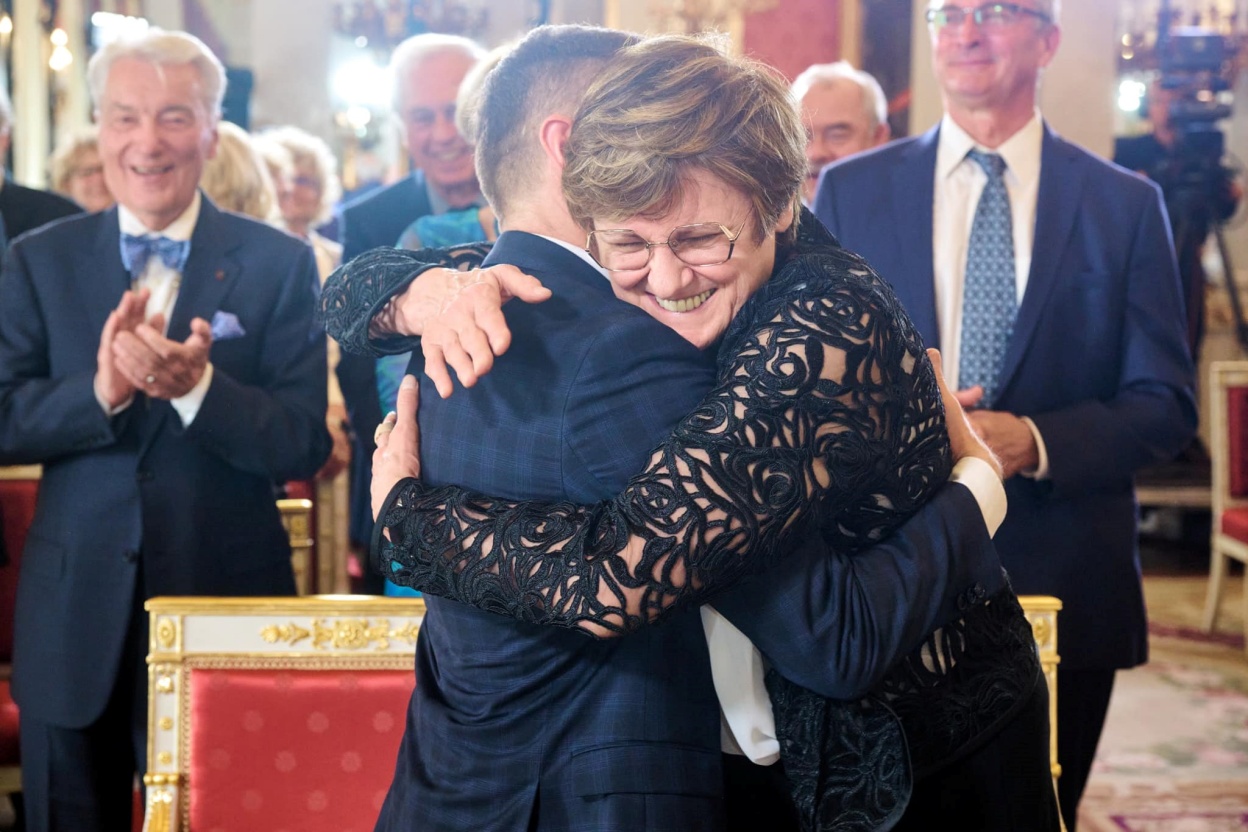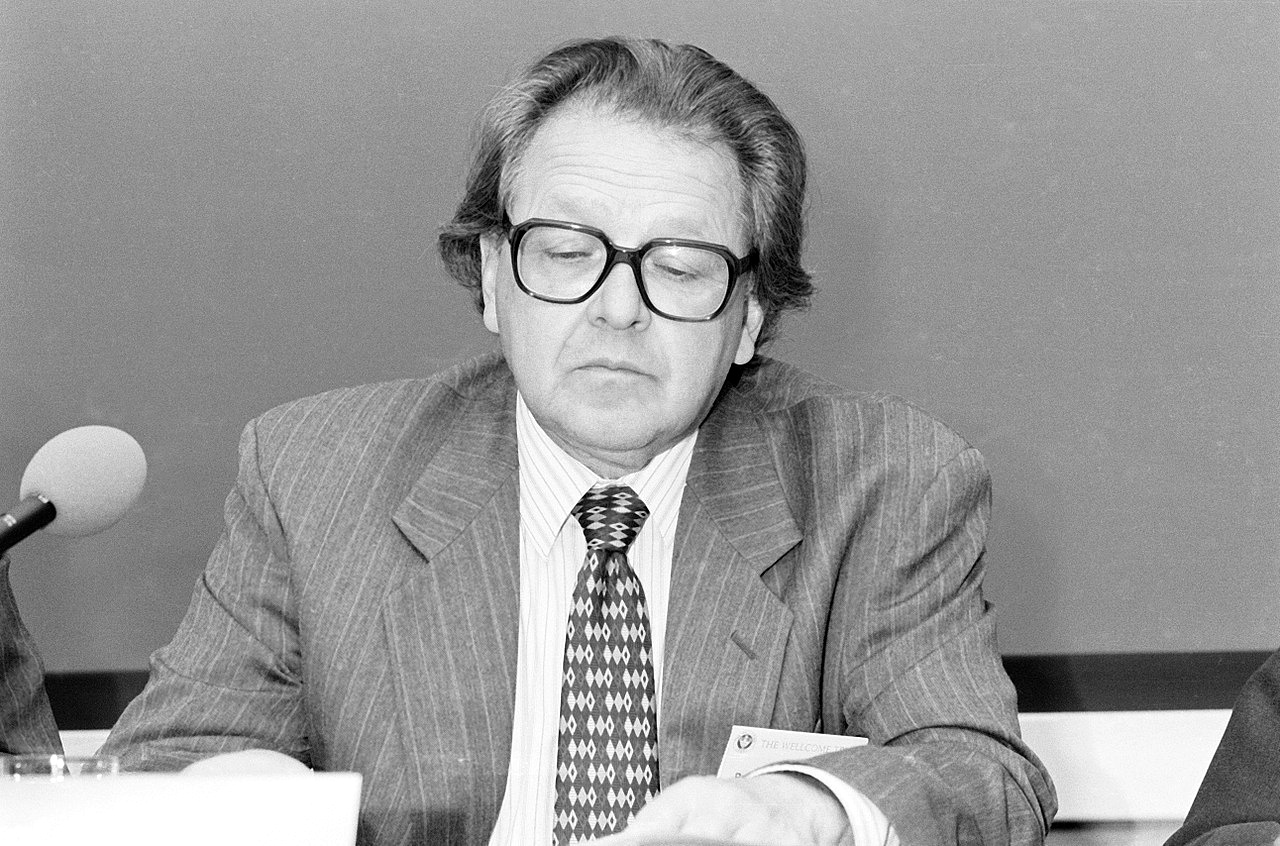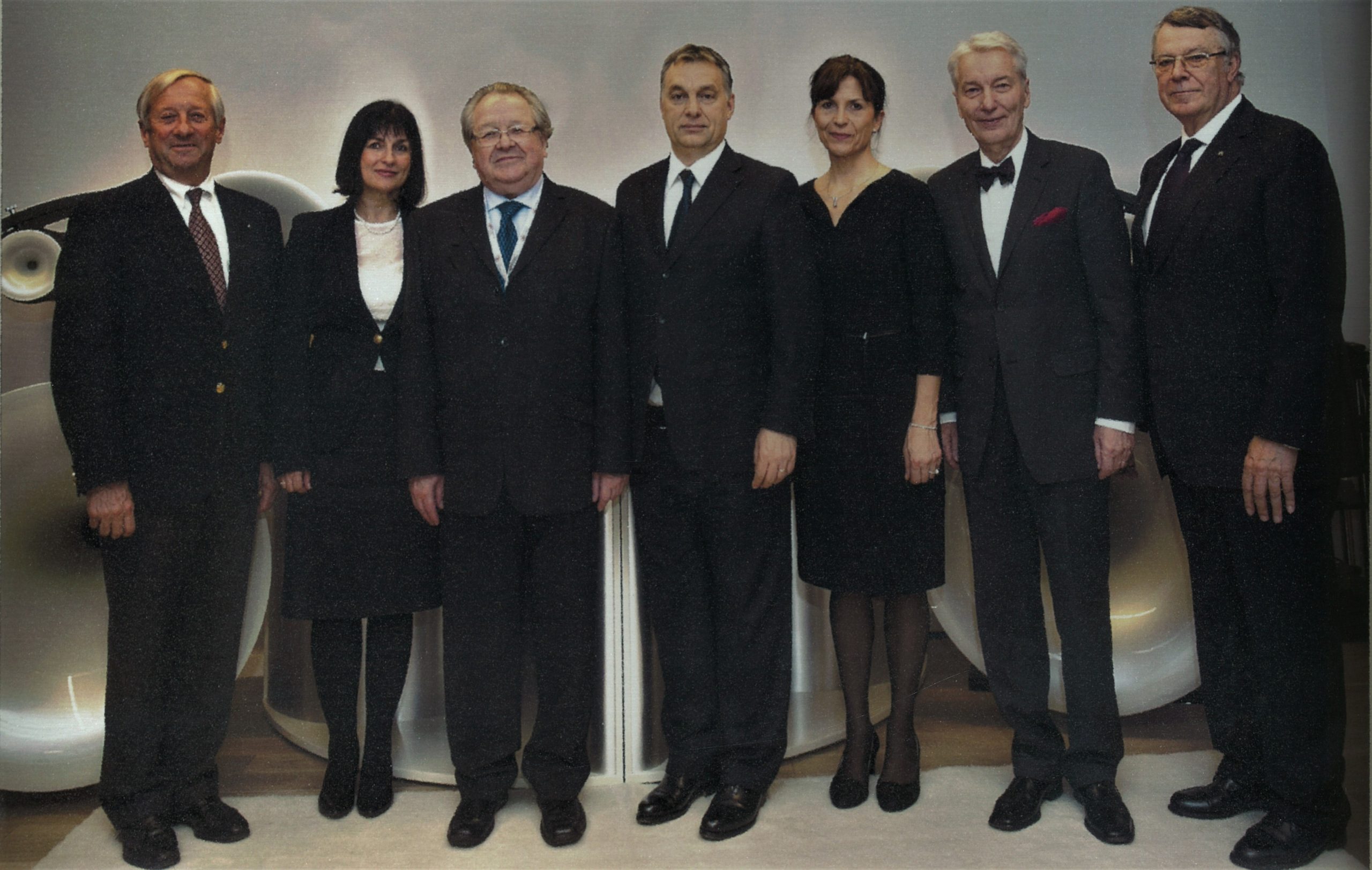
President Honors two of the great Hungarian scientists of our time.Continue reading

Professor Sir George Charles Radda (György Károly Radda), biochemist, recipient of the Hungarian Corvin Chain, the Buchanan Medal of The Royal Society, the Order of the British Empire, the Semmelweis Budapest Award, Honorary Member of the Hungarian Academy of Sciences, founding member of the Friends of Hungary Foundation (publisher of our news portal and Ungarn Heute) and member of the Hungarian Corvin Chain Board, died on September 13, 2024, at the age of 88.
Sir George Charles Radda was born on June 9, 1936 in Győr (northwestern Hungary). He graduated from the Benedictine High School in Pannonhalma and was admitted to the Eötvös Loránd University, majoring in chemistry. He emigrated from Hungary in 1956. He graduated from the University of Oxford and received his doctorate. Between 1962 and 1963, he worked at the University of California, Berkeley, under the supervision of Nobel Prize winner Professor Melvin Calvin. From 1964 to 1984 he was a research fellow and lecturer in biochemistry at Merton College, Oxford, and from 1988 to 1996 he was head of the Biochemistry and Clinical Magnetic Resonance Division of the Medical Research Council.
He is credited with the development of magnetic resonance imaging (MRI).
The professor was then the head of the Department of Biochemistry, University of Oxford (1991-1996), and Head of the Medical Research Council MRC between 1996 and 2003. His research focuses on enzyme regulation, bioenergetics and biochemistry of the living organism in relation to human diseases, particularly heart disease, diabetes and metabolic syndrome.

Sir George Radda (L3) with Mariann Vízkelety, Viktor Orbán, Anikó Lévai, E Sylvester Vizi, and István Fodor. Photo: Hungary Today
He was President of the National Cancer Research Institute, London, from 2001-2003 and Head of the Department of Physiology, Anatomy and Genetics, University of Oxford, from 2005-2008. In 2005, he founded the Singapore Bioengineering Consortium (SBIC), which he chaired until 2010. Sir Radda has played a significant role in promoting Singapore-Hungary scientific cooperation and exchange of experience. From 2008-2016, he served as Chairman of the A*STAR Biomedical Research Council.
The professor was a Fellow of The Royal Society of London since 1980 and Professor of Molecular Cardiology at the British Heart Foundation from 1984-2003. He was a member of several academies, including the Academia Europaea, and was an honorary member of the Hungarian Academy of Sciences since 2010. From 2023, he was the head of the President’s (Balázs Zoltán Gulyás) personal scientific advisory group at the HUN-REN Hungarian Research Network.
At the beginning of his career, he studied the structure and function of enzymes and membranes using fluorescence probes. He pioneered the application of nuclear magnetic resonance (NMR) to the human body.
He is the author of more than 800 publications.
His work has been recognized with numerous awards and honors, including the Colworth Medal (1969), the British Heart Foundation Gold Medal (1982), Buchanan Medal of The Royal Society (1987), and the Order of the British Empire (1993). Sir Radda was knighted by Her Majesty Queen Elizabeth II (2000), he later received the Medal of Merit of the International Academy of Cardiovascular Sciences (2006), Semmelweis Budapest Award (2011), Lifetime Achievement Award of the BioSpectrum Asia Exellence Awards (2013), Hungarian Order of Merit (2016), Hungarian Corvin Chain (2018).
Featured image via Wikipedia/History of Modern Biomedicine Research Group